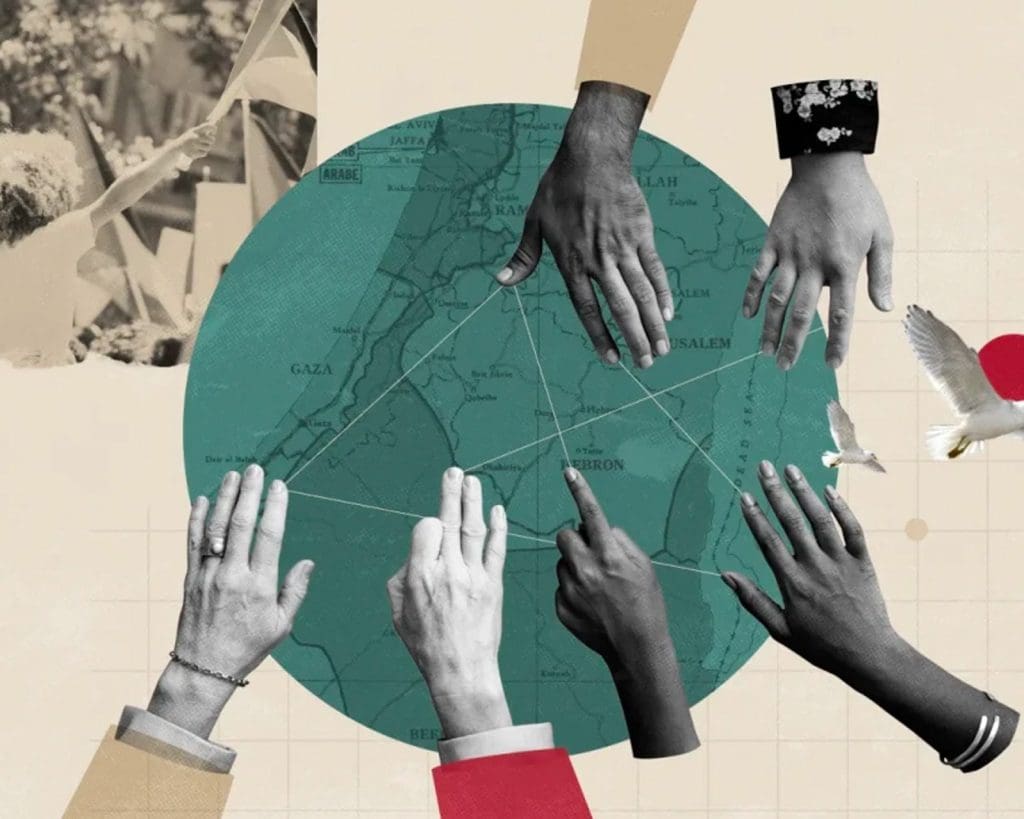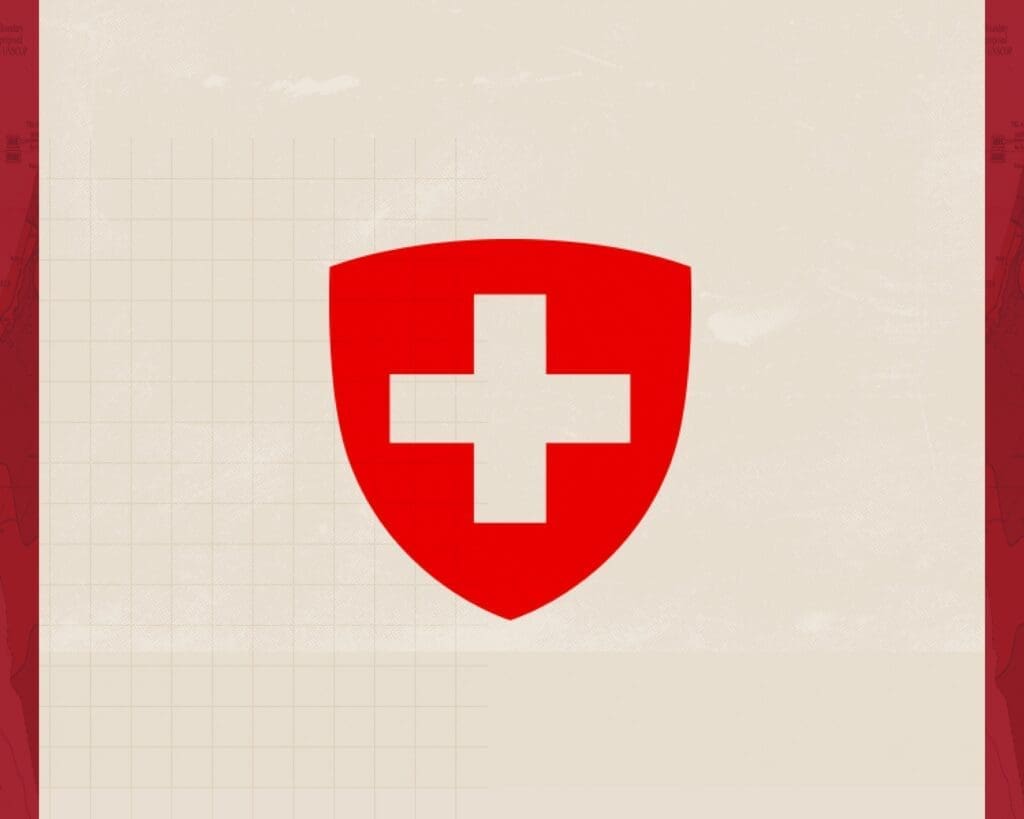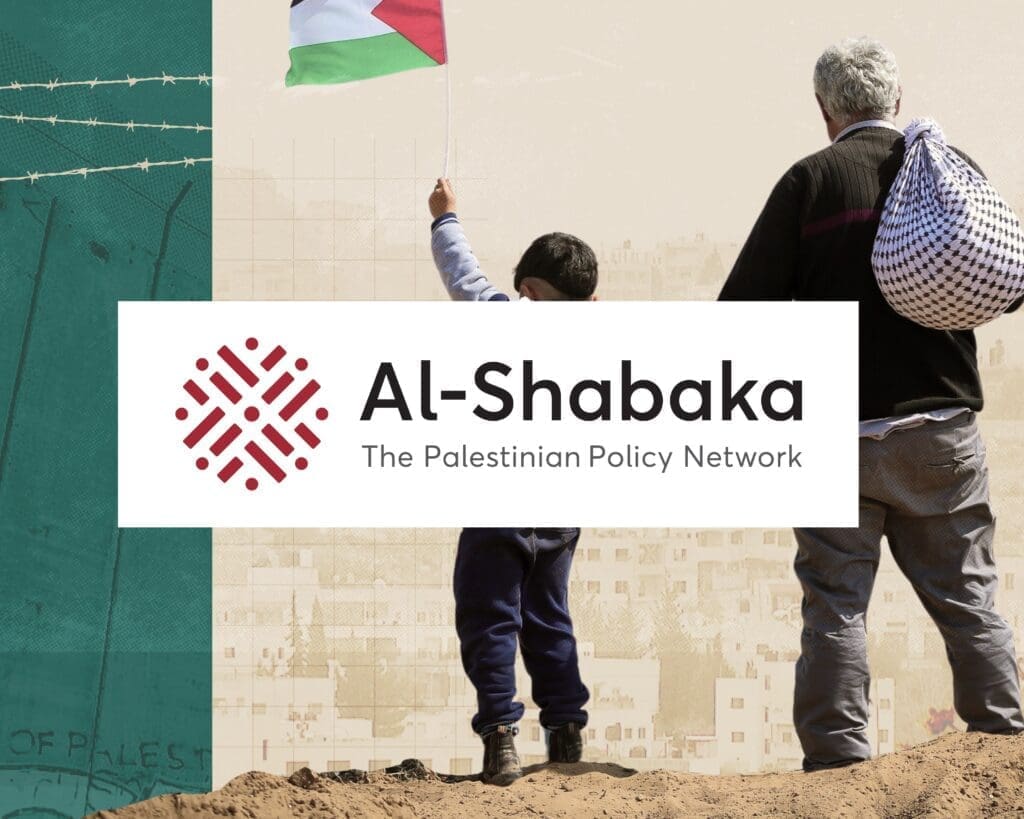
The Al-Shabaka staff and board are pleased to share our new institutional language, including rearticulated vision and mission statements, organizational values, and a theory of change.
Launched in 2010, Al-Shabaka has since operated under its founding mission: to educate and foster public debate on Palestinian human rights and self-determination within the framework of international law. Throughout this time, and among other notable shifts, Palestinians gained new ground in shaping global discourse vis-a-vis Palestine; international human rights organizations at long last heeded the Palestinian call to recognize Israeli apartheid; and Palestinian grassroots organizers forged new ties in global solidarity.
Each of these developments has informed and shaped our work at Al-Shabaka. As years passed and new strides were made, we found ourselves being pushed beyond the bounds of our original mission: International law was no longer vast enough to encompass the framework of our analysis; we sought to be more intentional about centering Palestinians as our primary audience and affirming our accountability to the Palestinian people as a whole; and we grew more focused on envisioning a liberated future.
Our Process
As our strategic cycle came to a close in 2022, the moment felt rife with opportunity to draft new language to better reflect the direction in which our work was already moving. It also presented an opportunity to further consider how we want to continue to evolve. During this process, we solicited vital input from hundreds of policy network members, partners, and supporters through surveys, focus groups, and interviews. We then took this feedback inward, with numerous collective discussions among the staff and board, and an in-person team retreat. This provoked challenging questions about our role as a policy think tank, how we create impact, and how we should prioritize our resources. We asked ourselves:
What does it mean to be a Palestinian policy think tank in service of liberation?
How does being part of an emancipatory struggle inform our priorities and where we commit our time, energy, and finances?
What does success look like in this space, and how may it differ from other policy think tanks?
We returned to these questions time and again. In doing so, we began to craft new language for Al-Shabaka that ultimately led to a profound and energizing reaffirmation of who we are as an institution, and of the change we hope to create and contribute to.
What follows is the culmination of this effort.
Our Vision
We envision the Palestinian people articulating and determining the contours of a liberated future.
We believe that transformative change and liberation are processes that must come from within. Our vision is of a world where Palestinians are at the helm of determining their collective future, relying on language recovered and reclaimed after generations of attempted silencing and erasure. It is a world free from settler colonization, apartheid, and imposed agendas and discourses.
Our Mission
Al-Shabaka convenes a multidisciplinary, global network of Palestinian analysts to produce critical policy analysis and collectively imagine a new policymaking paradigm for Palestine and Palestinians worldwide.
We believe that Al-Shabaka can serve the liberation movement by carving out space for Palestinians to critically examine their histories and conditions, to inform frameworks of solidarity organizing, and to articulate visions for liberation and what follows.
While tangible policy change designed to advance Palestinian liberation remains out of reach, we work to prefigure what liberated policymaking could look like: Palestinian-led, consensus-driven, pluralistic, and radically democratic. By putting these values into practice in our present work, we ready the ground for future actualization as a collective whole. Our policy network of over 200 Palestinian experts, analysts, and practitioners is fundamental to this effort, and it is through the engagement of our members that we can begin to conceive this new policy paradigm.
This work is fundamentally guided by a core set of institutional values – at the forefront of which is decolonization. We understand decolonization as the critical awareness and dismantling of colonial power and primacy, and the reclamation and recentering of indigenous knowledge, land, and culture. Such a process is an essential step in building a self-determined future.
Looking Forward
We hope that you are as inspired by this new articulation of our work as we are, and we invite you to delve further into our theory of change, institutional values, and key strategies for the forthcoming years by clicking here, or navigating to our site. We look forward to sharing our future work with you and, as always, appreciate your readership and support.
The Al-Shabaka Staff and Board
Al-Shabaka: The Palestinian Policy Network is an independent, non-partisan, and non-profit organization whose mission is to convene a multidisciplinary, global network of Palestinian analysts to produce critical policy analysis and collectively imagine a new policymaking paradigm for Palestine and Palestinians worldwide.











